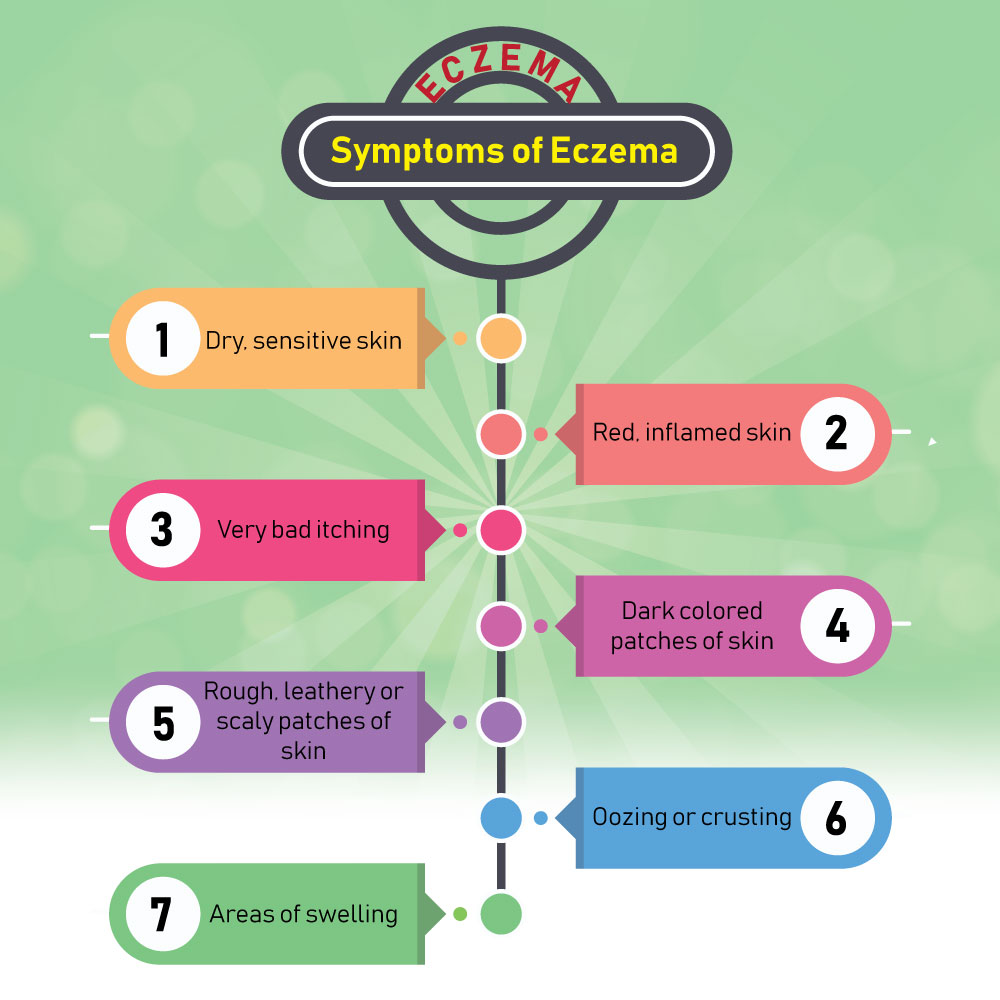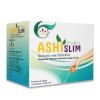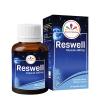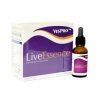What is Eczema?
Eczema is the name for a group of conditions that cause the skin to become red, itchy and inflamed. It’s sometimes called “the itch that rashes,” because the itching usually comes first. This group of skin rashes may first appear in babies and toddlers, becoming drier and flaky in older children. Adults may see scaly, leathery patches or a stubborn hand eczema.
Atopic dermatitis is a common, often-inherited form, but there are other types and many treatments. The other types of eczema are contact dermatitis, dyshidrotic eczema, neurodermatitis, nummular eczema, seborrheic eczema, and stasis dermatitis.
Types of Eczema
- Atopic dermatitis: The most common form of eczema. It usually starts in childhood and often goes away by adulthood. It is part of what doctors call the atopic triad. “Triad” means three. The other two diseases in the triad are asthma and hay fever. Many people with atopic dermatitis have all three conditions.
- Contact dermatitis: This is a skin reaction following contact with a substance or allergen that the immune system recognizes as foreign.
- Dyshidrotic eczema: This is an irritation of the skin on the palms of the hands and the soles of the feet. It is characterized by blisters.
- Neurodermatitis: This forms scaly patches of skin on the head, forearms, wrists, and lower legs. It is caused by a localized itch, such as an insect bite.
- Nummular eczema: These show as circular patches of irritated skin that can be crusted, scaly, and itchy.
- Seborrheic eczema: This forms oily, scaly, yellowish patches of skin, usually on the scalp and face.
- Stasis dermatitis: This is a skin irritation of the lower leg usually related to circulatory problems.
Symptoms of Eczema
The most important thing to remember is that eczema and its symptoms are different for everyone. Your eczema may not look the same on you as it does on another adult, or on your child. It may even appear in different areas of the body at different times.
Eczema is usually itchy. For many people, the itch is usually only mild, or moderate. But in some cases, it can become much worse and you might develop extremely inflamed skin. Sometimes the itch gets so bad that people scratch it until it bleeds, which can make your eczema worse. This is called the “itch-scratch cycle.”
The symptoms are as below:
- Dry, sensitive skin
- Red, inflamed skin
- Very bad itching
- Dark colored patches of skin
- Rough, leathery or scaly patches of skin
- Oozing or crusting
- Areas of swelling
You might have all of these symptoms of eczema or only just a few. You might have some flare-ups or your symptoms could go away entirely. But the only way to know if you have eczema for sure is to visit your doctor so he or she can look at your skin and ask you about your symptoms.

Is Eczema Contagious?
Eczema is not contagious.
You can’t “catch it” from someone else. While the exact cause of eczema is unknown, researchers do know that people who develop eczema do so because of a combination of genes and environmental triggers. When an irritant or an allergen “switches on” the immune system, skin cells don’t behave as they should causing an eczema flare-up.
Causes of Eczema
Children are more likely to develop eczema if a parent has had the condition or another atopic disease.
If both parents have an atopic disease, the risk is even greater.
Environmental factors are also known to bring out the symptoms of eczema, such as:
- Irritants: These include soaps, detergents, shampoos, disinfectants, juices from fresh fruits, meats, or vegetables.
- Allergens: Dust mites, pets, pollens, mold, and dandruff can lead to eczema.
- Microbes: These include bacteria such as Staphylococcus aureus, viruses, and certain fungi.
- Hot and cold temperatures: Very hot or cold weather, high and low humidity, and perspiration from exercise can bring out eczema.
- Foods: Dairy products, eggs, nuts and seeds, soy products, and wheat can cause eczema flare-ups.
- Stress: This is not a direct cause of eczema but can make symptoms worse.
- Hormones: Women can experience increased eczema symptoms at times when their hormone levels are changing, for example during pregnancy and at certain points in the menstrual cycle.
Eczema Treatment
There is no cure for eczema but there are treatments. Depending on age and eczema severity, these treatments include over-the-counter (OTC) remedies, prescription topical medications, phototherapy, immunosuppressants, and biologic drugs. Many people with eczema also find success with specific natural and alternative treatments.









Facebook Comments